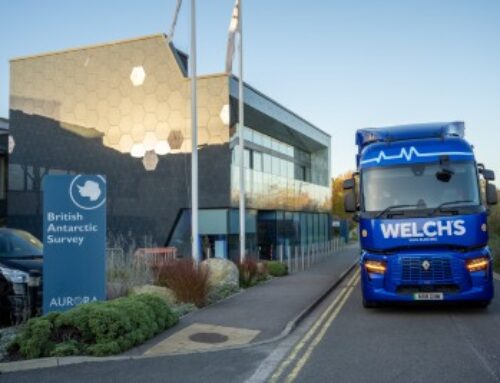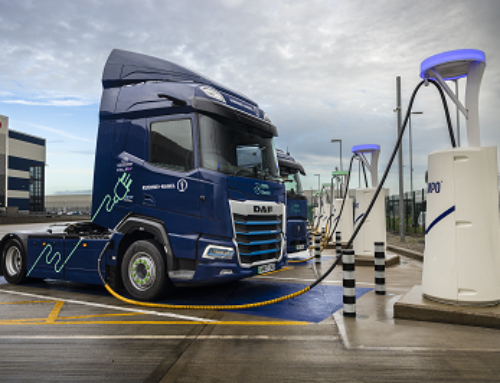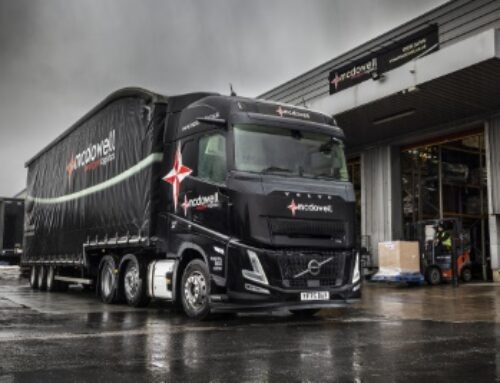Government responds to MPs’ net zero concerns
 Both Logistics UK and the House of Commons transport committee have expressed disappointment at the government’s response to a call for clarity on its decarbonisation strategy.
Both Logistics UK and the House of Commons transport committee have expressed disappointment at the government’s response to a call for clarity on its decarbonisation strategy.
The official response was to a report by the committee, Fuelling the future: motive power and connectivity. The government has reiterated that it will “demonstrate several zero-emission HGV technologies at scale on UK roads to identify how they can each best be used to decarbonise the heaviest HGVs”, via the Zero Emission Road Freight Demonstrator (ZERFD) Programme.
However, besides battery-electric and fuel-cell electric it is difficult to discern what technologies these would be, if any, given the government’s stated commitment to “transitioning to vehicles that are fully zero emission at the exhaust”.
For example, in May, the transport minister Baroness Vere of Norbiton told the House of Lords “We believe that [hydrogen internal combustion engines] are not zero-emission engines as they produce trace carbon dioxide and NOx.”
In agreement with a committee recommendation, the government also said it would: “develop a Zero Emission HGV Infrastructure Strategy outlining the use cases, associated infrastructure needs and energy requirements for a zero emission road freight sector.”
It went on to say that the ZERFD programme: “will also collect a strong evidence base to enable strategic, long-term national infrastructure decisions to be made to support decarbonisation of the road freight sector. Over the coming years, hundreds of zero emission 40–44 tonne HGVs are expected to be on UK roads as part of this programme, along with the deployment of associated refuelling and recharging infrastructure.
“The first competitions, focusing on long haul zero emission HGVs powered by batteries and hydrogen fuel cells, closed in October 2022. Further announcements will be made in due course.
“This follows the government’s £20m Zero Emission Road Freight Trials (ZERFT) programme which supported industry to conduct feasibility studies into developing cost-effective, zero-emission HGVs and their associated infrastructure in the UK. As a result of ZERFT, there are now 20 new battery electric HGVs, built by Leyland DAF in Leyland, Lancashire, in full scale operation in public sector fleets on UK roads.”
In a statement following the official response, transport committee chair Iain Stewart MP called for “more meat on the bone” from government “about which fuels in each mode of transport they should be backing”.
Logistics UK noted that the government’s goal was “zero exhaust emissions, as opposed to an alternative approach to net zero looking at the whole energy lifecycle”.
Michelle Gardner, deputy director of policy at Logistics UK, acknowledged that the government response also pledged publication of a previously promised low carbon fuels (LCFs) strategy, setting out a vision for LCFs’ deployment across transport modes up to 2050.
She said: “Government’s response creates many questions surrounding the role of low carbon fuels in decarbonisation and whether they will be properly backed as a transitional technology, and if they will have a long-term future.
“In addition, with government placing significant emphasis on the use of battery electric technology and zero tailpipe emissions for road transport, it is essential that the challenges currently faced by the sector – in relation to private and public charging infrastructure, as well as the increased costs of acquisition – are urgently addressed. It is also vital that the ZERFD is progressed as soon as possible.”
Logistics UK later announced it had written to the transport minister Jesse Norman, to call for further government progress on decarbonisation – including through the urgent publication of the LCF strategy.
The call for action followed a parliamentary roundtable on decarbonisation held in late June, which was organised by Logistics UK and hosted by Greg Smith MP, who is the chair of the All-Party Parliamentary Group (APPG) on Road Freight and Logistics.
The letter also called for a halt to proposed changes to the Greenhouse Gas Protocol (GHGP), and greater progression on the ZERFD trials.
Kate Jennings, director of policy at Logistics UK, said: “The LCF strategy is now six months late and this, together with concerns over the pace of electric vehicle infrastructure and zero emission freight trials, is inhibiting private sector investment.
She added: “At the parliamentary roundtable, industry highlighted how vital a strategic partnership is with government to deliver a fair transition to a green economy. Members also raised significant concerns over adding costs to customers if decarbonisation is not delivered efficiently.
“Industry fully recognises the role it has to play to achieve decarbonisation but sufficient support must be in place to ensure it is achievable and does not push prices up on the shelves.”
Greg Smith commented: “Despite a monumental push towards battery electric, the real future of fuel is not written yet.
“The way we de-fossilise is up for grabs and low carbon fuels and synthetic fuels must be part of that. We look forward to continuing to engage with industry on the subject to drive forward positive change.”













